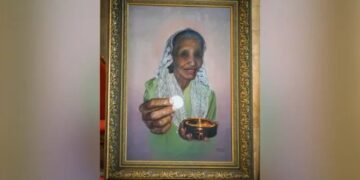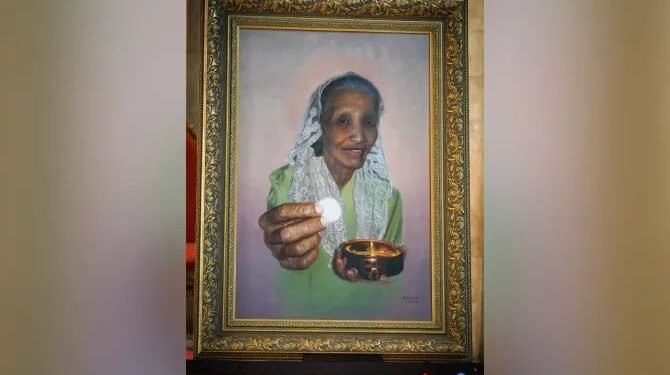By Charles Igwe
The Diocese of Pasig in the Philippines, under the leadership of Bishop Mylo Hubert C. Vergara, is moving forward with the sainthood cause of Servant of God Laureana “Ka Luring” Franco. This significant step follows the Vatican’s recent approval, allowing the diocese to continue its investigation into Franco’s life and works.
Franco, a devoted member of the Legion of Mary, spent her life teaching the Catholic faith, praying, and serving the poor. Born in 1936 into a humble family as the eldest of eight children, she was deeply influenced by her parents’ strong faith. After working briefly as a switchboard operator for the Philippine Air Force, Franco fully committed herself to the Church, becoming a full-time, unpaid catechist in 1969.
Her dedication to the faith was evident in her service within the Archdiocese of Manila, where she became one of only two laywomen authorized to administer Communion. Known for her humility and tireless work for the poor, Franco never sought recognition for her contributions, living a life marked by simplicity and devotion.
In February of this year, the Diocese of Pasig, which includes Franco’s hometown of Taguig, formally announced her candidacy for sainthood. On July 10, Bishop Vergara publicized the “nihil obstat” document from the Vatican’s Dicastery for the Causes of Saints, which confirmed that there were no objections to the continuation of her sainthood cause.
During an event on August 21 at the Archdiocesan Minor Basilica and Shrine of St. Anne in Taguig City, the postulator for Franco’s cause, Erickson Javier, presented the “supplex libellus” to Bishop Vergara. This collection of documents officially requests the opening of the diocesan phase of the investigation into Franco’s life. The diocesan tribunal will now examine her life to determine if she demonstrated heroic virtue. The findings will be compiled into a “positio” and sent to the Vatican’s Dicastery for the Causes of Saints.
If the Pope acknowledges Franco’s heroic virtue, she will be declared “venerable.” The next steps would involve beatification, which requires a verified miracle attributed to her intercession, and finally, canonization, where the Pope would officially declare her a saint.
Laureana Franco’s contributions to the Church have already been recognized during her lifetime. In 1990, St. John Paul II honored her with the Pro Ecclesia et Pontifice award, given to Catholics with a long history of distinguished service to the Church and the Pope. She also received the Mother Teresa Award in 2002, further acknowledging her selfless service and dedication to the faith.
Franco passed away in 2011 at the age of 75, after a battle with ovarian cancer, leaving behind a legacy of dogged faith and service. The advancement of her sainthood cause is a testament to her extraordinary life and the impact she had on the Church and its faithful.










































